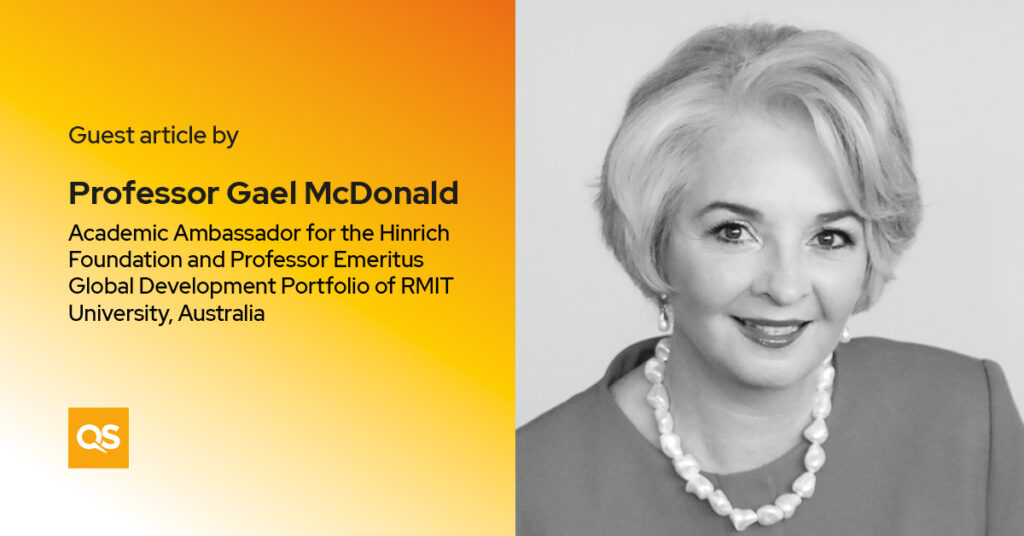
To mark 10 years since the launch of the International Student Survey (ISS), we spoke to QS Insights Manager, Alex Berka, about his work on the survey throughout the years and its impact on the higher education sector.

Can you tell us what the ISS is and how you’ve been involved in it since its launch?
“The ISS is an online quantitative survey of prospective international students from all over the world. As the Insights Manager at QS, I manage the survey, determine the survey content and foster partnerships with universities who can then distribute the survey on our behalf to their international candidates.
It is also my responsibility to analyse and interrogate the data to establish the most important and relevant insights to bring to market. I then oversee the writing and delivery of a series of reports based on candidate views for a variety of key global study destinations.”
What do you enjoy most about working on the ISS?
“I first started working for QS in 2017, over a year after the Brexit referendum. I instantly recognised the need to highlight the student perspective in the ongoing Brexit debates and the potential for the ISS to provide a voice for international candidates – especially those from the EU. It’s so important to consider the student perspective in the context of globally significant issues and I love that the ISS gives me the opportunity to ensure the student voice is acknowledged – whether that’s on Brexit or coronavirus or something else!”
How would you say the ISS has evolved since you first began working on the series?
“I think the ISS has continually evolved and is constantly changing, as it should do. It’s so important to ensure that the questions we ask are reflective of the issues that are front of mind for international students and these will always be different for successive cohorts of students. It also means we’re able to talk to universities on the most up-to-date topics, helping their communication strategies to be more agile and responsive.
I think the other change is that the ISS has become a truly global survey in the last couple of years. We’re able to foster partnerships with universities in a larger number of locations now, most notably in Europe and North America. This has helped the survey to become a more reliable and authoritative indicator of international student sentiment and we’re aiming to enhance this further next year.”
Can you describe a time where the ISS had a significant impact on the higher education sector?
 “I can certainly remember a time when the results from the survey directly reflected changes in key government policy
“I can certainly remember a time when the results from the survey directly reflected changes in key government policy
decisions. Our aim was to ask international candidates whether changes to the post-study work visa in the UK would impact their study decisions. The results suggested that the overwhelming majority (76%) would be more likely to consider the UK if they could stay in the country beyond the four-month limit (which was the restriction at the time). A few days after we published the report, the government raised the length of time that international graduates could remain in the country from four months to two years.
I can’t be certain that our report had a direct impact on government policy, but it was nice to see the link between student sentiment and government policy reflected so strongly. It really reiterated to me that the data we gather is a reliable barometer of judging certain topics.”
The first of the 2022 ISS series, the UK edition, was published today! With many other regional reports to follow, can you give us a sneak preview of some of the most interesting insights readers can expect to discover?
“From the UK perspective, one of the biggest insights to emerge is that the country is seen as one of the safest destinations in the world for international students, especially according to candidates from the Americas, Middle East and Africa. A combination of relatively low crime rates, a pre-existing substantial international student population and strict gun laws, reiterate the UK’s attractiveness as a study destination.
The other thing to note more broadly is that the coronavirus hasn’t led to a dramatic shift in attitudes towards online learning (something that many were predicting). Interest in learning online hasn’t increased. A hybrid learning model still seems to elicit much more interest and it would appear that international students continue to demand a face-to-face element in their education.”
Request your copy of the QS International Student Survey 2022 – UK edition today!


